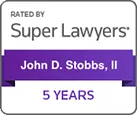Artificial Intelligence (AI) is reshaping the way we approach white-collar crime defense, and it’s something we can’t ignore. I’ve been working on white-collar cases for years, and one thing I’ve learned is that these cases are incredibly complex. We’re often staring down mountains of financial data, emails, and internal documents, and the task of sifting through all that information used to be a grueling one. I remember a case where we spent weeks combing through records—hours of tedious, manual labor just to make sense of it all.
Today, things are different. AI can scan through those documents in a fraction of the time. It’s like having a supercharged assistant who never gets tired or overlooks a detail. I’ve seen firsthand how AI tools can pick out patterns and connections that would have taken us forever to find on our own.
But make no mistake—AI isn’t doing the work for us. It’s helping us do our job faster and more effectively, but at the end of the day, it’s still up to lawyers to use judgment, experience, and instinct to build a strong defense. AI helps us get to the important parts of a case quicker, and it allows us to be more strategic with our time.
I like to think of it like this: AI is the tool that helps us focus more on the art of defense, giving us back the time we used to spend buried in paperwork. It’s a game-changer, but it works best in the hands of a lawyer who knows how to wield it.
Contents [hide]
- 1 What is White-Collar Crime?
- 2 The Role of AI in Legal Research
- 3 AI-Powered Evidence Review and Management
- 4 AI and Risk Assessment in White-Collar Crime
- 5 AI-Driven Forensic Accounting
- 6 AI in Courtroom Strategy
- 7 Ethical Considerations and Limitations of AI
- 8 The Future of AI in White-Collar Crime Defense
- 9 Conclusion
What is White-Collar Crime?
When people hear the term “white-collar crime,” they often think of fraud or embezzlement—maybe some high-profile case involving a corporate executive. And while that’s part of it, white-collar crime actually covers a much broader range of non-violent offenses, typically committed for financial gain. We’re talking about things like insider trading, money laundering, tax evasion, and bribery, just to name a few.
One of the challenges with defending white-collar crime is the sheer complexity. I remember working on a case that involved years of financial transactions, with every move scrutinized by regulators and investigators. In these types of cases, it’s not always about what was done, but rather proving the intent behind the action. That’s where things get tricky—figuring out what’s a genuine mistake and what was done with criminal intent.
These cases also involve a lot of regulatory laws and financial rules that aren’t always straightforward. It’s like putting together a giant puzzle where half the pieces are missing, and that’s why AI is starting to play such a big role in these defenses. Sorting through financial records and corporate documents, identifying discrepancies, and analyzing behavior patterns—these are things AI does really well, and it helps us focus on the more strategic parts of the defense.
White-collar crime cases are not about flashy headlines—they’re about understanding the details and making sense of the complex financial systems that most people would find overwhelming. And that’s where the right tools, combined with good old-fashioned legal experience, make all the difference.
The Role of AI in Legal Research
Legal research has always been one of the most time-consuming parts of defending a case, especially when you’re dealing with something as intricate as white-collar crime. I can still remember sitting down for hours at a time, flipping through case law, trying to find that one precedent or ruling that could help turn things in our favor. It was like finding a needle in a haystack, and sometimes you’d feel like you were drowning in legal texts.
With AI, that process has changed dramatically. Now, instead of spending days going through volumes of cases, AI can quickly analyze legal databases, pulling up relevant case law, statutes, and rulings in seconds. It’s almost like having an incredibly fast research assistant that’s never overwhelmed by the workload. This means we can spend less time looking for the law and more time applying it.
One of the big advantages AI brings is predictive analytics. It doesn’t just find cases for us—it can analyze past case outcomes and help predict how a judge or jury might respond to certain arguments. I’ve seen this kind of analysis really shape the way we approach a defense, giving us an edge when it comes to strategy.
But at the end of the day, while AI is a fantastic tool, it’s only as good as the person using it. Sure, it can give us the case law and even suggest how things might play out, but it’s still up to us to craft the right argument, present it convincingly, and know when to adjust the strategy. AI might point us in the right direction, but it’s human experience and judgment that gets results in the courtroom.
AI-Powered Evidence Review and Management
When you’re defending a white-collar crime case, one of the most daunting tasks is managing the mountain of evidence that comes with it. I’ve been involved in cases where we’ve had to review thousands of emails, financial statements, contracts, and more. It’s overwhelming, to say the least. Before AI, this meant long days and late nights, manually going through every piece of information to make sure nothing was missed.
That’s where AI-powered tools have truly revolutionized the game. These systems can sift through huge amounts of data quickly and efficiently, flagging the most relevant documents and even identifying patterns we might not have noticed right away. For example, AI can help uncover a series of email exchanges buried in hundreds of pages of documents that turn out to be key to the defense. Without AI, those crucial details might have been overlooked, or worse, discovered too late.
The efficiency AI brings to document review doesn’t just save time. It also reduces the risk of human error. No matter how sharp you are, when you’re reviewing thousands of files, there’s always a chance something important slips through the cracks. AI helps minimize that risk by automating the process, ensuring that every piece of evidence is accounted for.
But again, AI isn’t doing the job for us. It’s a tool that helps us get through the grunt work faster and more accurately, allowing us to focus on developing a stronger defense strategy. It gives us a head start, but it’s still up to us to make the critical calls on how to use the information we uncover.
AI and Risk Assessment in White-Collar Crime
Risk assessment is a critical part of defending white-collar crime cases. In these cases, understanding the potential outcomes and risks can shape the entire defense strategy. AI has stepped in here, too, helping to evaluate the risks associated with different legal approaches by analyzing massive datasets of past cases.
AI can use historical data to predict sentencing outcomes based on the specific charges and facts of the case. It can also help assess whether negotiating a plea deal or proceeding to trial is the smarter move based on previous similar cases. This data-driven insight can help attorneys make better decisions and manage client expectations.
Another important application is in plea negotiations. AI tools can help identify trends in plea agreements in similar cases, giving defense teams a clearer idea of what kind of deal might be on the table. This allows for more strategic negotiations and helps us weigh the risks of going to trial versus accepting a deal.
While AI provides valuable insights, it doesn’t replace the attorney’s judgment. A human touch is still necessary to interpret the data, account for nuances in the case, and make decisions that align with the client’s best interests. AI enhances risk assessment, but it’s not a crystal ball—it’s a tool we use to inform our strategy, not dictate it.
AI-Driven Forensic Accounting
Forensic accounting plays a huge role in white-collar crime cases, and it’s an area where AI has made a big impact. When you’re dealing with allegations of fraud, embezzlement, or money laundering, the financial data can be overwhelming. In some cases, we’re looking at years of transactions, across multiple accounts, involving complex corporate structures. Before AI, tracking down discrepancies or suspicious patterns was like trying to find a needle in a haystack.
Now, AI-driven forensic accounting tools can analyze massive volumes of financial data in a fraction of the time it used to take. AI can spot irregularities, flag patterns, and even predict future financial behavior based on historical data. Here’s an example case: AI can help identify a series of unusual transfers between shell companies that weren’t immediately obvious to the human eye. That information then becomes a key part of the defense strategy.
AI doesn’t just speed up the process. It makes it more accurate. It reduces the chances of missing critical details buried deep within complex financial records. But just like with other AI tools, forensic accounting software is only as good as the person using it. We still need to interpret the data, understand the context, and decide how best to use that information in court.
While AI has certainly improved forensic accounting, it hasn’t replaced the expertise and insight that comes from years of experience in financial law. It’s just another tool in our kit, helping us dig deeper and uncover the truth in ways that weren’t possible before.
AI in Courtroom Strategy
When it comes to defending white-collar crime in the courtroom, AI is starting to influence the way lawyers approach strategy. Traditionally, courtroom tactics were shaped by the attorney’s experience, knowledge of the law, and a good read on the judge or jury. While that’s still true, AI is now giving us a new edge by analyzing how certain arguments or pieces of evidence might resonate based on historical data.
AI tools can review past cases involving similar charges, analyzing how judges have ruled and how juries have responded to certain defense strategies. This kind of insight can help shape everything from the opening statement to the cross-examination. Here’s an example case of how that works out: AI analysis shows that certain types of financial evidence is more likely to sway the jury in our favor, leading the defense lawyer to emphasize those points in the trial.
Another big advantage AI offers is the ability to analyze the prosecution’s case. By reviewing the evidence and legal arguments the prosecution is likely to use, AI can help us anticipate their strategy and prepare a counter-argument ahead of time. It’s like having an advanced playbook that helps us think two or three steps ahead.
That said, courtroom strategy isn’t something that can be fully automated. AI can provide us with data and trends, but it’s still the lawyer’s experience, instincts, and connection with the jury that make the real difference. AI helps us refine our approach, but it’s not a substitute for the human element in the courtroom.
Ethical Considerations and Limitations of AI
As with any powerful tool, the use of AI in white-collar crime defense comes with ethical concerns and limitations. While AI can help attorneys work more efficiently and effectively, it also raises important questions about fairness, privacy, and bias.
One of the main ethical concerns is the potential for AI to reinforce existing biases. AI systems learn from historical data, which means they can sometimes reflect the biases present in that data. In a legal context, this could mean that AI recommendations for sentencing or plea deals might unintentionally favor certain outcomes based on race, gender, or socioeconomic status. Attorneys need to be aware of this possibility and carefully scrutinize the results AI produces.
Privacy is another major issue. AI tools often require access to vast amounts of data, which can include sensitive financial records, emails, and personal information. Ensuring that this data is handled securely and ethically is critical, especially in white-collar cases where the stakes are high. There’s always the risk of over-reliance on AI, where the human element, like the ability to apply empathy, context, and judgment gets lost in the process.
While AI is a powerful tool, it has limitations. AI can process large amounts of information and suggest patterns, but it doesn’t understand the nuances of a case the way a seasoned attorney does. It can’t make judgment calls or interpret the subtleties of human behavior in the way that’s often necessary in white-collar crime defense. That’s why, despite its advantages, AI is best used as a complement to human expertise, not a replacement for it.
The Future of AI in White-Collar Crime Defense
Looking ahead, it’s clear that AI will continue to play an even bigger role in white-collar crime defense. As the technology evolves, we can expect AI to become more sophisticated, helping defense teams not only with research and document review but also with crafting complex legal strategies and potentially predicting case outcomes with greater accuracy.
One area where AI is likely to grow is in predictive modeling. As more data is fed into these systems, AI will become better at forecasting how different defense tactics might play out in court. This could lead to more tailored strategies, where lawyers use AI to adjust their defense in real-time, based on how a case is progressing.
AI will also likely improve in the area of forensic analysis. With even more powerful algorithms, AI could uncover intricate patterns in financial data, making it easier to defend against accusations of fraud or insider trading. In cases where we might have previously relied on forensic accountants alone, AI will provide an additional layer of precision and speed, leading to quicker and more accurate analysis.
However, as AI becomes more integrated into the legal system, it’s crucial to maintain a balance. While technology will undoubtedly enhance how we defend white-collar crime cases, the need for human judgment, empathy, and experience will remain. At the end of the day, AI is a tool, and the future of legal defense will depend on how well attorneys can combine cutting-edge technology with their own expertise and insight.
Conclusion
Artificial Intelligence is undoubtedly changing the landscape of white-collar crime defense, offering tools that help streamline processes, uncover hidden insights, and make data-driven decisions. From legal research to forensic accounting, AI has proven to be a valuable asset in managing the complexities of these cases. It allows defense attorneys to work more efficiently, but it’s important to remember that AI is just that—an asset, not a replacement.
At the core of any defense is the experience, judgment, and strategy that only an attorney can provide. While AI can help us navigate the data-heavy nature of white-collar crime, it’s the human element that ultimately makes or breaks a case. Understanding how to use AI effectively, without losing sight of the nuances and ethical considerations that come with defending a client, is where true legal expertise lies.
As AI continues to evolve, so will its role in legal defense. But no matter how advanced the technology becomes, the role of a dedicated attorney, who knows the law and understands the intricacies of their client’s case, will always remain central to achieving the best possible outcome.




